Today’s post is from Engage Celebrants’ Elizabeth Trevan. Civil ceremonies are no longer just for the non-religious. They enable you to bring your culture, traditions and (if you like) religious beliefs to create a ceremony that reflects who you are as individuals and as a couple. Elizabeth shares stories of how several couples have married with unique ceremonies that bring their rich heritages together and create new traditions for their families.
There seems to be a huge cultural shift in the way we view marriage in Australia today, in particular over the past 10 years. Couples are getting married later in life, one third are unmarried at the time of the birth of their first child and there has been a large increase in the volume of ceremonies conducted by civil marriage celebrants. As celebrants we see this change unfold in a small scale, regularly and before our very eyes. In 2010, almost 70% of marriage ceremonies were conducted by civil celebrants, up from 42% in 1990.
Carmel and Tony celebrate their marriage their way at Hat Head
As a young celebrant I am asked by people from all walks of life to help them publicly declare their love. This wedding season has seen a great deal of marriages where the bride and groom come from diverse and differing cultural and religious backgrounds. Now this is not unusual, obviously. We live in Australia after all – a wonderful melting-pot of humanity and so cross-cultural weddings are the norm.
What has been more notable however is that for many this civil wedding is the first in the family to be conducted outside of the church, synagogue or place of worship. For most of the guests this will be their first ever experience of a civil wedding as well. It’s extremely exciting to be able to showcase such a personal rite of passage which is very focused on the bride and groom and the reactions so far have been amazing.
Tobhiyah and Daniel married under a Chuppah at the Vaucluse Yacht Club, Watson’s Bay – Photo by Alex Vaughan
In using the couple’s language, rituals and symbolism and by including family we have been able to honour the beliefs and doctrines of each bride and groom. At the same time we’ve created a ceremony that is theirs alone. It celebrates their relationship and what binds them together, acknowledges their individual selves and where they have come from but also pays tribute to a new partnership that is more than the sum of its parts.
Here are just a few examples:
Tobhiyah and Daniel were able to marry under a Chuppah (a Jewish tradition). They shared wine with their parents in a Ukranian ritual and had one of their good friends Bella read a rollicking poem she had written for their wedding day; all in acknowledgement of this unique couple.
Elissa and Daniel (a different Daniel) had a Greek Crowning Ceremony, assisted by Elissa’s auntie or Koumbara (God Mother), to honour the bride’s heritage. They also entered via an aisle of huge maritime ropes “borrowed” from Sydney Ferries in recognition of their love of sailing.
Sabina and David were also married under a Chuppah, had religious readings in Italian and English and finished with a traditional Jewish breaking of the glass. In this way they were honouring the differing religious upbringings of both the bride and groom, Catholic and Jewish, whilst setting a new path for themselves.
Sharing bread and wine with their parents – a traditional Ukranian ritualPhotos by Alex Vaughan
In the past perhaps either the bride or groom may have conceded some ground and the wedding would have been conducted at the place of worship of one or the other. Now it seems there is a sense that through a civil ceremony the cultural and religious heritages of both bride and groom and their families can be acknowledged and honoured. Most importantly this can be done without taking away from the fact that this union is ultimately the decision of the bride and groom to share their future together regardless of their origins or beliefs.
Part of the reason for this may be that because couples are marrying slightly older they have spent more years out from under the family roof, more time in education and building a career and often have a stronger sense of self. So within their ceremony they have a clearer set of values that they speak from. Their choices of wording and sentiment for the ceremony are very much indicative of who they are as individuals as well as a couple.
Photos by Alex Vaughan
Whatever the reason we love it when couples work with their celebrant to create unique meaningful ceremonies that are a true reflection of their relationship. How fortunate we are to be able to celebrate the richness that makes up the diversity of Australia and witness it in such a beautiful way at a wedding.
Source(s): ABS 2010 Marriages and Divorces, Australia (cat. no. 3310.0); ABS 2008 Australian Historical Population Statistics (cat. no. 3105.0.65.001); ABS Australian Demographic Statistics Quarterly (cat. no. 3101.0)
Ms Gingham says: I love that about Australia… the willingness that people have to embrace new traditions and make them their own only makes us richer. Great article!
“Engage Celebrants is a network of young, professional and above all fun celebrants. We aim to get the word out to couples about just how great a civil ceremony can be and the importance of choosing the perfect celebrant to bring your dreams to life. “


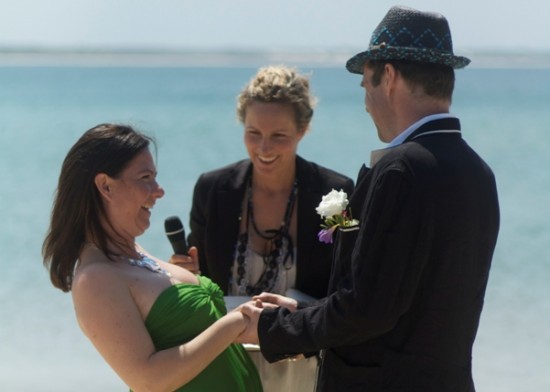
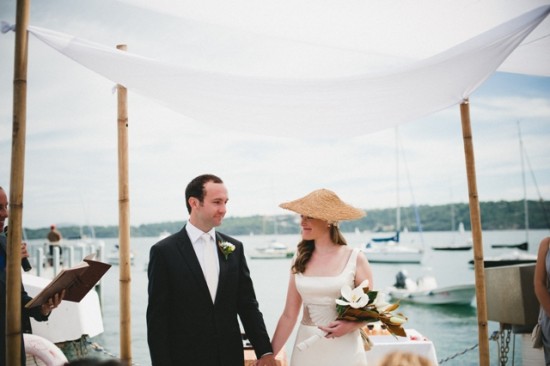
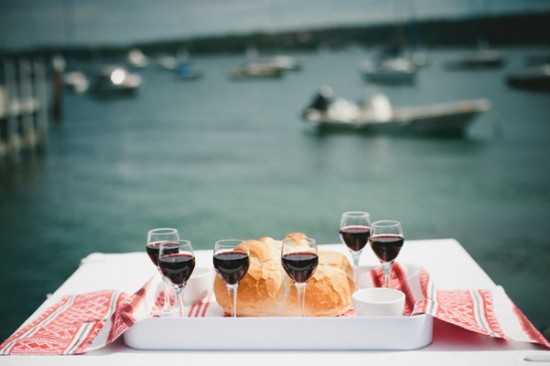
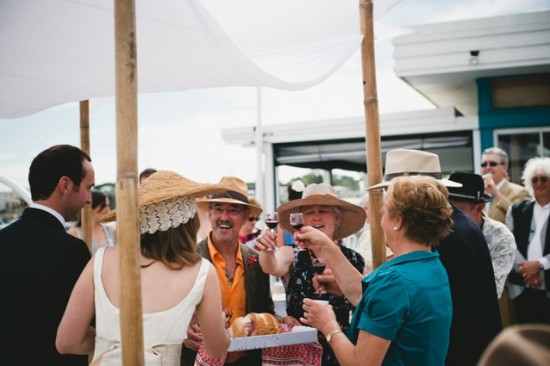
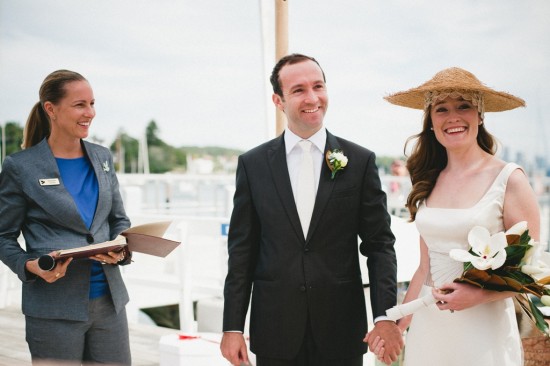
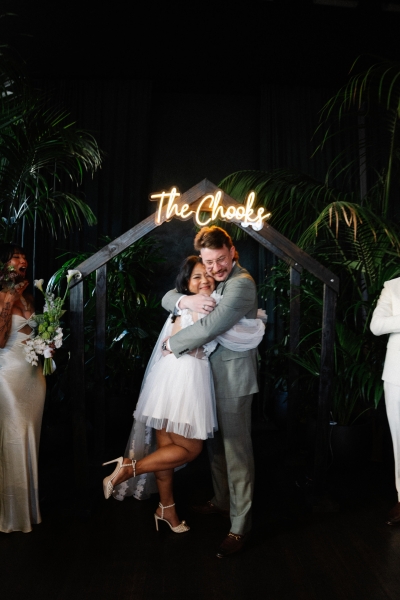
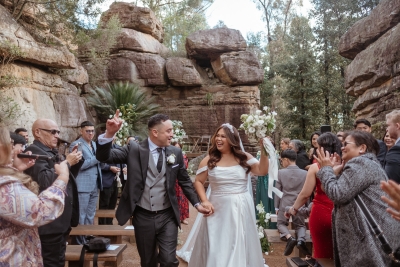
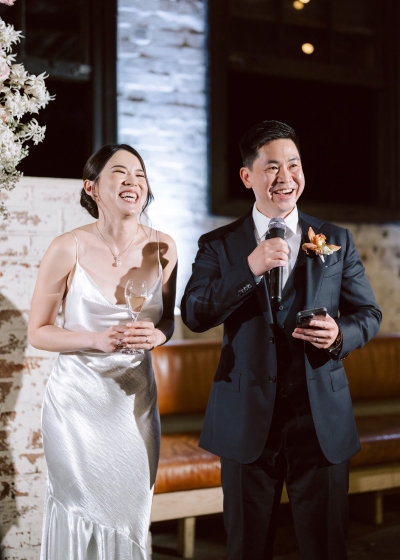

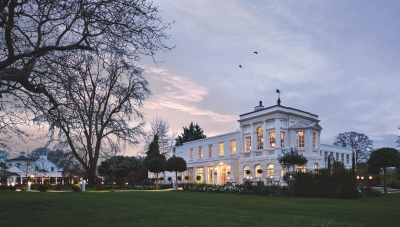



On Friday 24th January, our couple celebrated a catholic & Jewish ceremony with a Catholic priest and a Jewish celebrant. You can always make it work and personalising your ceremony (and wedding) is the best thing you can do to make your wedding memorable to you and your guests!